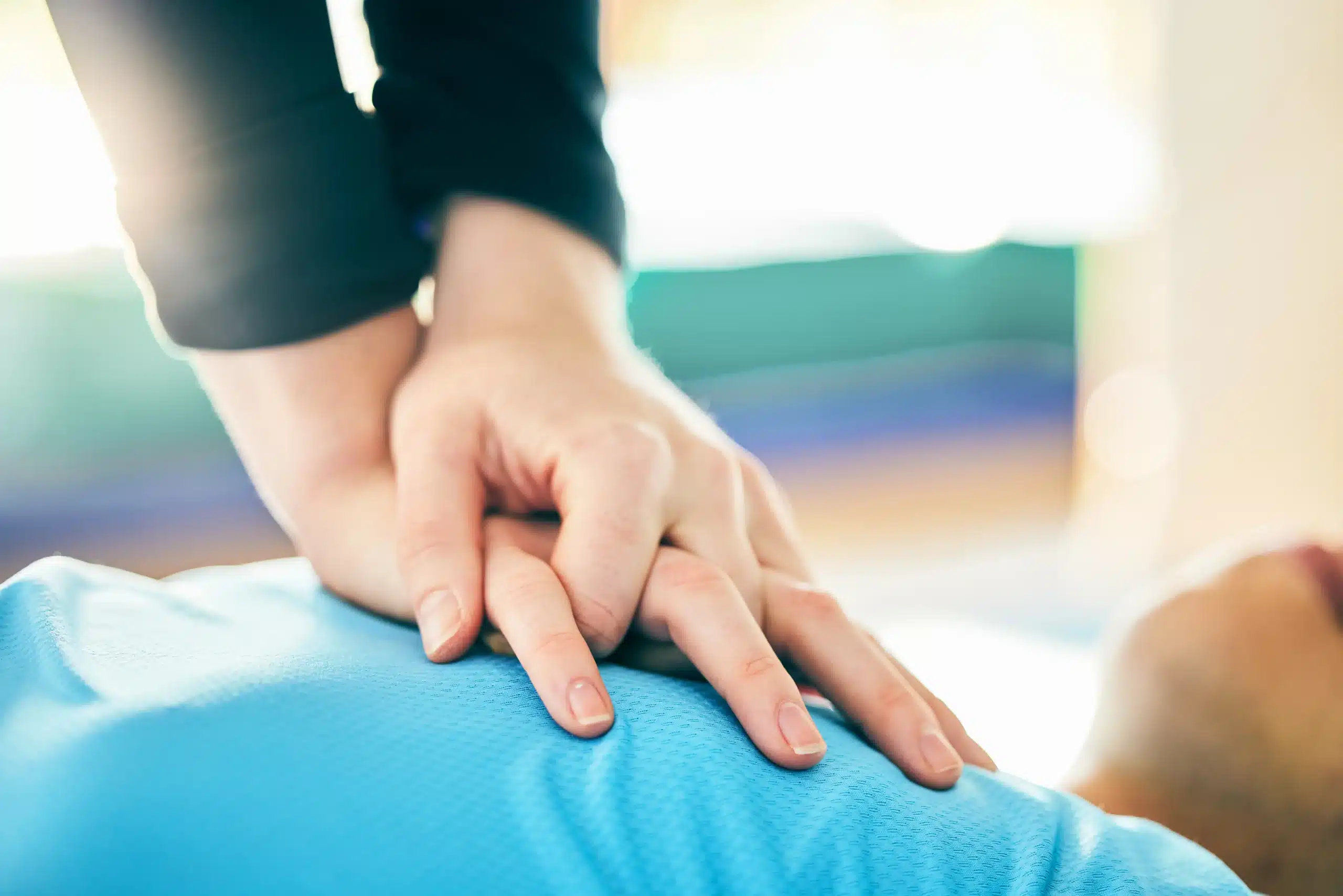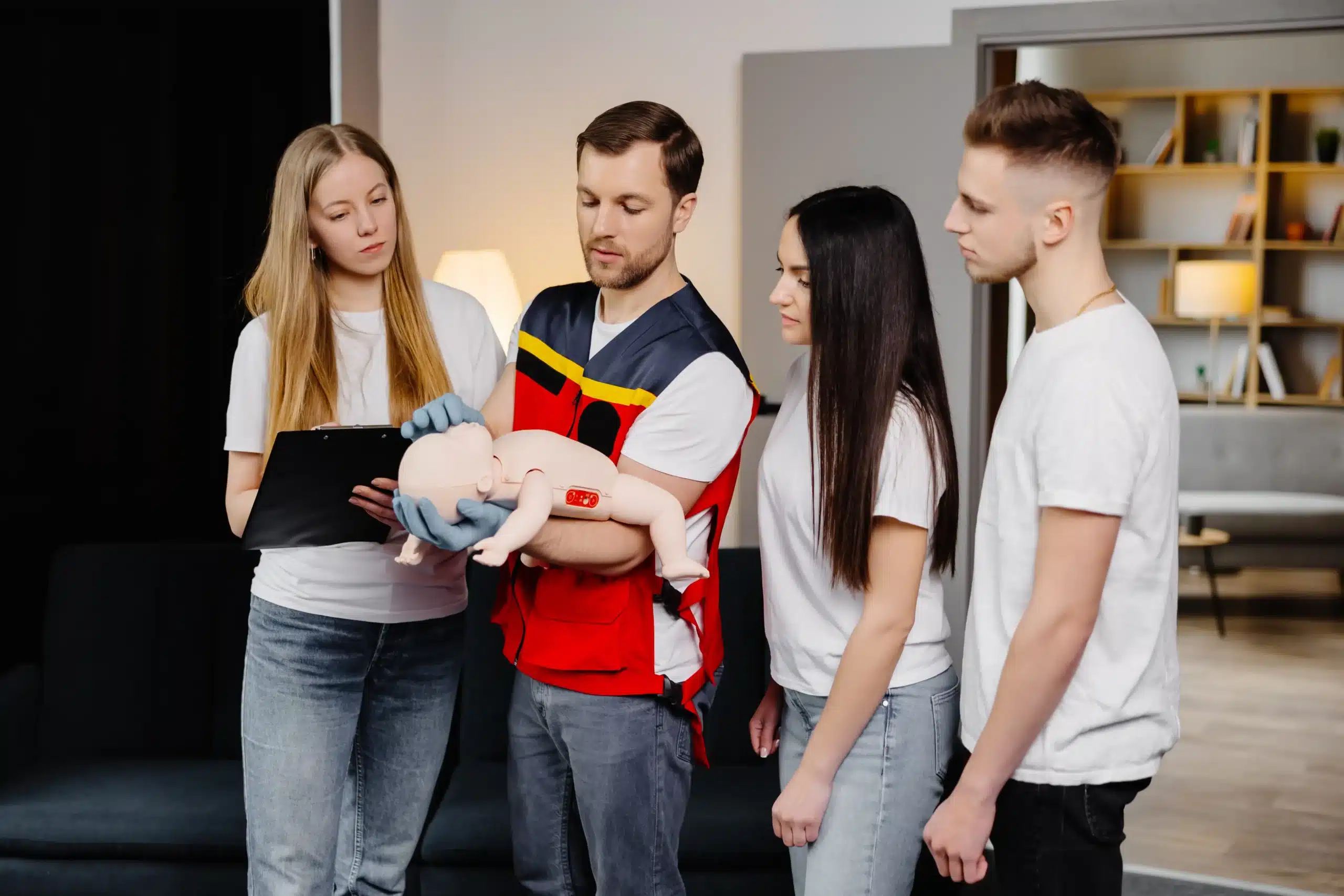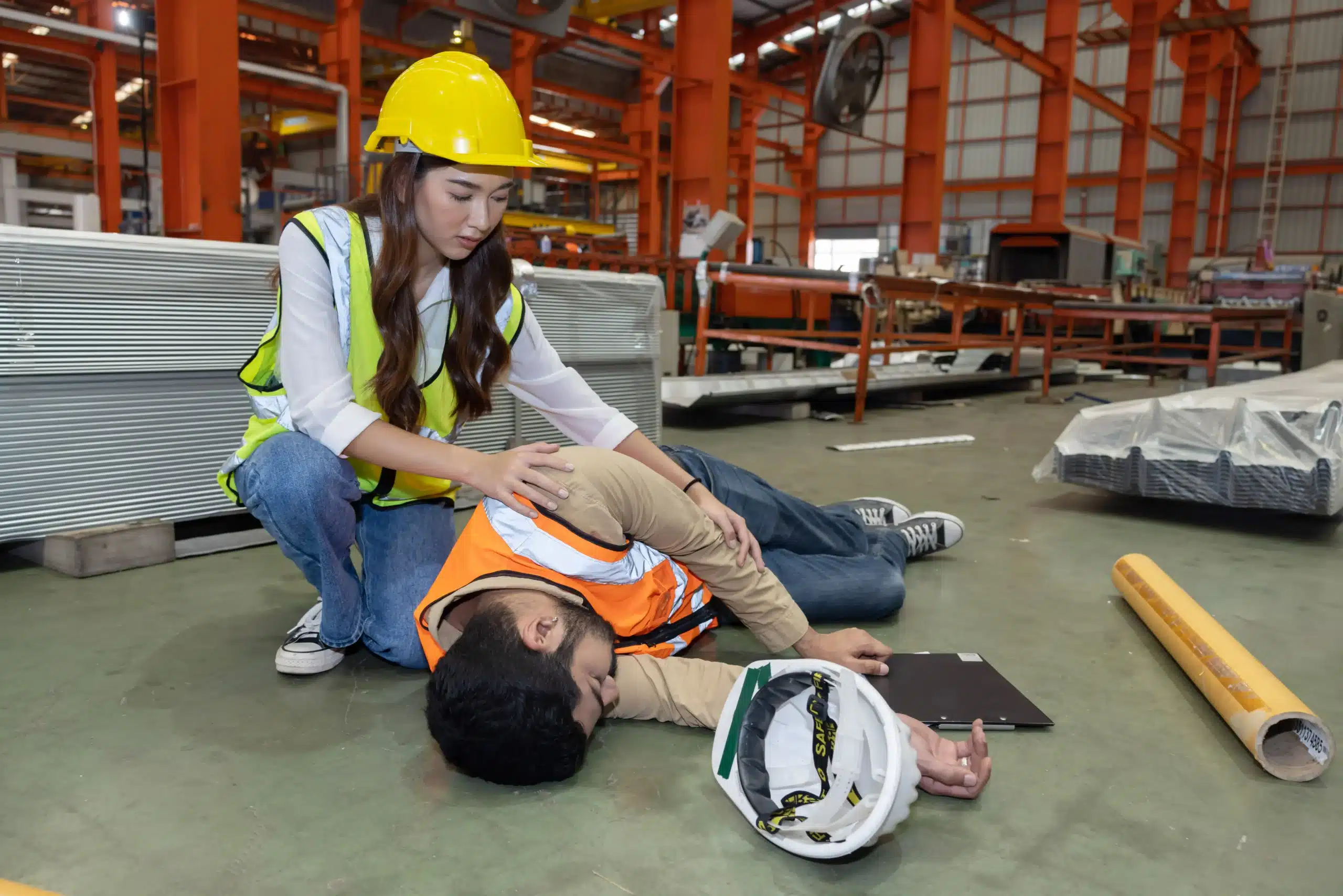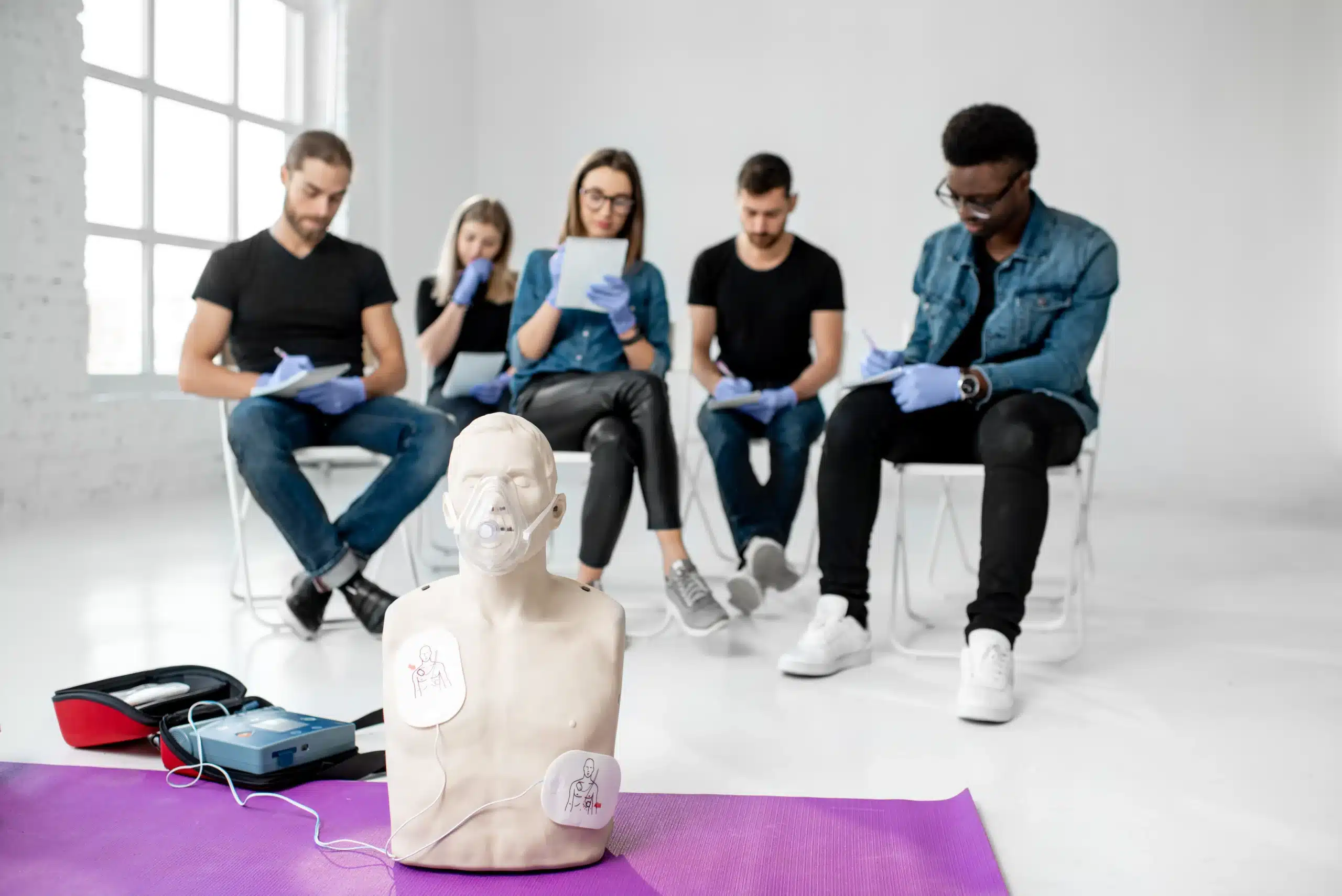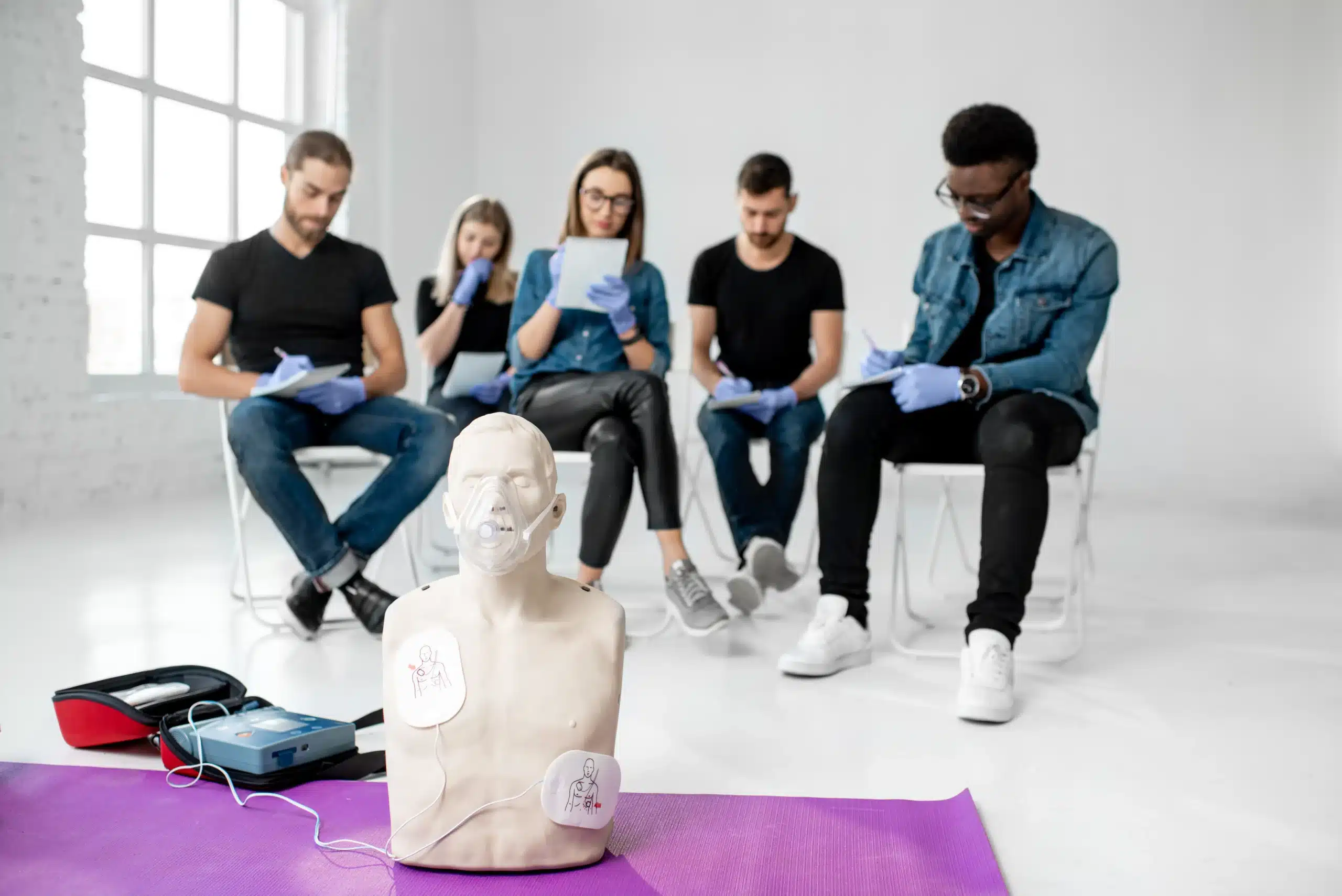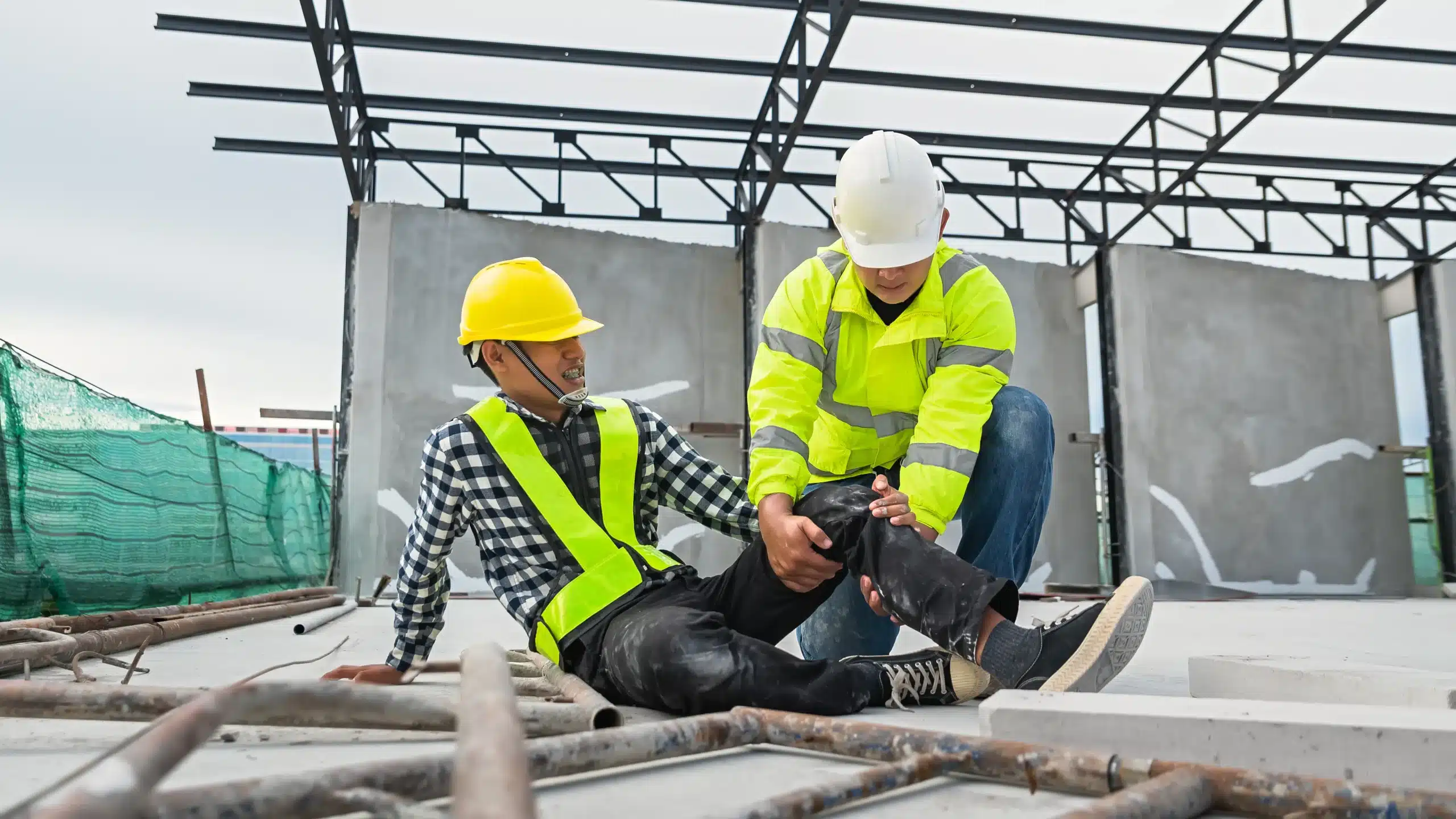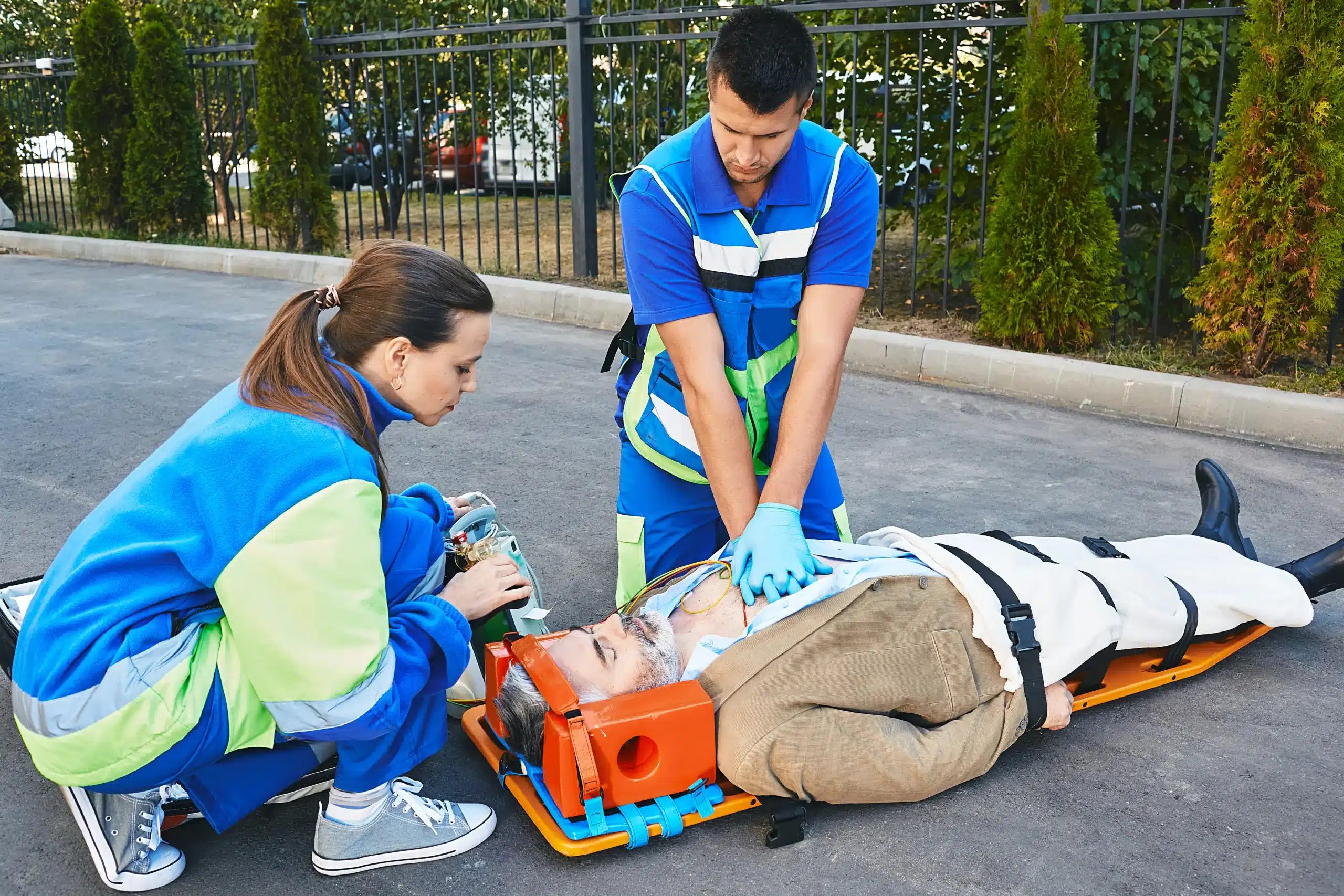Emergencies can happen anytime, anywhere. Would you know what to do if someone near you experienced cardiac arrest or started choking? Basic Life Support (BLS) training empowers you to respond effectively in these critical situations. It equips you with the skills to perform CPR, use an AED, and clear obstructed airways, potentially saving a life. This article explores the importance of BLS, what the training entails, and how to find BLS classes in Davis, CA, to become a more confident and prepared individual.
Key Takeaways
- BLS skills are essential for everyone: From medical professionals to everyday people, knowing how to perform CPR, use an AED, and clear an obstructed airway can save lives.
- Finding a BLS course that works for you is simple: Consider factors like cost, schedule, and the blend of online and in-person components when selecting a course. Affordable and accessible options are available.
- BLS certification opens doors: Whether for career advancement, volunteer opportunities, or simply the peace of mind of being prepared, BLS certification offers valuable and lasting benefits.
What is BLS & Why Does it Matter?
Basic Life Support (BLS) is a crucial set of lifesaving skills used in emergencies like cardiac arrest and choking. It involves recognizing these life-threatening situations, performing CPR, using an AED, and clearing obstructed airways. BLS training empowers you to act quickly and confidently when every second counts. While it’s essential for healthcare professionals, anyone can benefit from learning these skills. Whether you’re a parent, teacher, coach, or simply want to be prepared to help in your community, BLS certification equips you to make a real difference. Knowing how to respond effectively can dramatically improve the outcome of an emergency.
Key BLS Skills
BLS courses cover a range of essential skills, including CPR for adults, children, and infants. You’ll also learn how to use an automated external defibrillator (AED), a portable device that can help restore a normal heart rhythm. Airway management techniques are another critical component, teaching you how to help someone who is choking or having difficulty breathing. Beyond these core skills, BLS training also emphasizes the importance of quick decision-making and coordinating access to first aid, AEDs, and emergency medical services. These courses provide hands-on practice and build your confidence in managing emergencies. Davis CPR Classes offers comprehensive BLS courses that cover all these essential skills.
Common BLS Certification Myths
One common misconception is that BLS certification is only for medical professionals. This simply isn’t true. Anyone can—and should—learn these lifesaving skills. Another myth is that BLS training requires a huge time commitment. In reality, courses are designed to be accessible and efficient, fitting into busy schedules. Cost is another frequent concern, but many affordable options are available, including Davis CPR Classes’ low price guarantee. The benefits of being prepared to handle a medical emergency far outweigh the investment in training.
Top Davis BLS Providers
Finding the right BLS training center is an important first step. Here are some of the top BLS providers in Davis, California:
Davis CPR Classes
Davis CPR Classes offers comprehensive daily BLS courses along with CPR, ACLS, and PALS certifications through the American Heart Association. They’re committed to offering the lowest prices in Sacramento County, making quality training accessible to everyone. As a woman-owned AHA Training Center, they offer courses in over 60 cities and provide innovative programs like the RQI for medical professionals. The Davis location serves Davis, Woodland, and Sacramento.
Safety Training Seminars
Safety Training Seminars provides American Heart Association certified BLS, ACLS, PALS, and CPR/First Aid classes. They offer daily classes and can also arrange group sessions at your location, providing flexibility for both individuals and organizations. They also offer courses in EMS health and safety, and lead poisoning prevention.
UC Davis Fire Department
The UC Davis Fire Department offers a range of CPR and First Aid certification courses, including BLS. They’re a great resource for the community, with free courses for UC Davis students and paid options for the public. Visit their website for current course schedules and registration details.
Bay Area CPR
Bay Area CPR specializes in American Heart Association certified BLS, ACLS, PALS, and CPR/First Aid classes. They offer daily classes and can conduct group sessions at your location, making it easy for both individuals and organizations to get certified. This on-site option is particularly useful for busy professionals or groups.
UC Davis Health
UC Davis Health provides various CPR courses suitable for all levels of staff and community members in the Sacramento area. Their courses meet Joint Commission requirements, maintaining high standards for healthcare professionals. They offer different levels of CPR training, from basic to advanced.
What Happens in a BLS Class?
So, you’re thinking about taking a BLS class? Great! Knowing what to expect can help you feel prepared and confident. This section covers the typical BLS class experience, from course length to innovative training methods.
Course Length & Formats
BLS courses typically take a few hours to complete, depending on the format and provider. You’ll learn how to coordinate access to first aid kits, AEDs, and emergency services—and how to make quick decisions in a crisis. Some courses blend online learning with in-person skills sessions, offering flexibility for busy schedules. Others are entirely in-person, providing hands-on practice from the start. Check with your chosen provider, like Davis CPR Classes, to see what formats they offer.
Physical Demands & Practice
BLS classes are hands-on. Be prepared to practice skills like chest compressions, rescue breaths, and using an AED. This involves working on your hands and knees, bending, standing, and sometimes lifting. If you have any physical limitations, it’s always a good idea to notify your instructor in advance. For example, UC Davis Health recommends contacting them beforehand if you have any concerns.
Certification & Validity
After successfully completing a BLS course, you’ll receive your BLS certification. This certification is typically valid for two years. Organizations like the Red Cross offer recertification courses as your expiration date approaches, so you can easily stay up-to-date.
Innovative Training (RQI, VAM)
Many BLS courses now incorporate innovative training methods like the Resuscitation Quality Improvement (RQI) program. RQI often involves practicing with voice-activated mannequins (VAMs). This allows for more personalized feedback and flexible practice sessions. Some providers offer skills testing with VAMs, even without an instructor physically present, though support is usually available by phone if needed. This type of training can be especially helpful for refreshing your skills and maintaining proficiency. You can find more information on RQI training at Davis CPR Classes.
Find the Right BLS Class
Choosing the right BLS class involves a few key considerations to ensure it fits your needs, budget, and learning style. Let’s break down what you should look for when making your decision.
Costs & Guarantees
BLS certification shouldn’t empty your wallet. Davis CPR Classes offers a low price guarantee for their courses, giving you confidence that you’re receiving quality training at a competitive rate.
Scheduling
Finding a class that works with your schedule is essential. Davis CPR Classes offers BLS courses in Davis daily, with both online and in-person options. This flexibility helps you choose a format and time that fits your life. Because classes can fill up, booking your spot early is always recommended.
In-Person or Online?
The choice between in-person and online learning comes down to personal preference. Some courses, like their BLS certification, offer a blended learning experience. You might complete some coursework online (typically 1–2 hours for BLS) and then attend an in-person session to practice your skills. The RQI program also combines online learning with in-person skills sessions for a more streamlined approach.
Accreditation & Reputation
Accreditation is key for BLS certification. Ensure the course you select comes from a recognized organization like the American Heart Association (AHA). AHA BLS certification is widely accepted and valued in healthcare. If you’re part of the UC Davis system, UC Davis Health offers CPR courses that meet the Joint Commission requirements for their staff.
Benefits of BLS Certification
Getting your BLS certification is more than just checking a box; it opens doors and empowers you in several ways. Whether you’re pursuing a healthcare career, want to feel confident in emergencies, or are considering volunteer opportunities, BLS certification offers tangible benefits.
Healthcare Jobs
BLS certification is often a non-negotiable requirement for many healthcare jobs. From registered nurses and paramedics to certified nursing assistants and medical assistants, having a current BLS certification validates your skills and makes you a more competitive candidate. Many employers see it as a baseline qualification, demonstrating your commitment to patient safety and high-quality care. If you’re aiming to advance your healthcare career, BLS certification is a crucial first step.
Emergency Confidence
Knowing you can effectively respond in a medical emergency brings a sense of calm and confidence. BLS training equips you with the skills to assess situations, perform CPR, use an AED, and provide basic life support until professional help arrives. This preparedness can make all the difference, potentially saving lives. It’s not just about having the knowledge; it’s about having the confidence to apply it under pressure.
Volunteering
If you’re interested in volunteering with organizations like the Red Cross or community emergency response teams, BLS certification can significantly enhance your application. Many organizations require or prefer volunteers with up-to-date BLS certification, signaling your readiness to assist in emergencies and your dedication to community safety. Getting certified can open doors to a range of fulfilling volunteer experiences.
Renewal & Lifelong Learning
BLS certification typically lasts for two years. The renewal process keeps your skills fresh and ensures you’re up-to-date with the latest advancements in emergency care. Recertification courses offer a valuable opportunity to refresh your knowledge, refine your techniques, and maintain your proficiency in providing high-quality BLS. This commitment to lifelong learning demonstrates your dedication to providing the best possible care in emergency situations.
Related Articles
- BLS Classes in Sacramento: The Complete Guide – Davis CPR Classes
- BLS Certification for Healthcare Providers in Woodland – Davis CPR Classes
- BLS Courses in Woodland: Your Certification Guide – Davis CPR Classes
- Basic Life Support (BLS) in Davis: A Complete Guide – Davis CPR Classes
- Debunking Common CPR Myths for an Effective Response
Frequently Asked Questions
Is BLS certification only for healthcare professionals? Not at all! While essential for healthcare providers, anyone can benefit from BLS training. Parents, teachers, coaches, and anyone who wants to be prepared for emergencies can learn these lifesaving skills.
How long does it take to get BLS certified? BLS courses are designed to be efficient, typically taking a few hours to complete. Some programs offer blended learning with online coursework and shorter in-person skills sessions, making it easier to fit into a busy schedule.
What if I have physical limitations? Can I still take a BLS class? Absolutely. BLS classes involve hands-on practice, but instructors can adapt to accommodate various physical limitations. It’s always recommended to inform your instructor of any concerns beforehand so they can make the necessary adjustments.
How much does BLS certification cost? The cost of BLS certification varies depending on the training center and course format. However, many affordable options are available. Look for providers like Davis CPR Classes that offer a low price guarantee to ensure you’re getting quality training at a competitive price.
How often do I need to renew my BLS certification? BLS certification is typically valid for two years. Renewal courses are readily available and provide a valuable refresher on essential skills and updates to best practices, ensuring you’re always prepared to respond effectively in an emergency.


